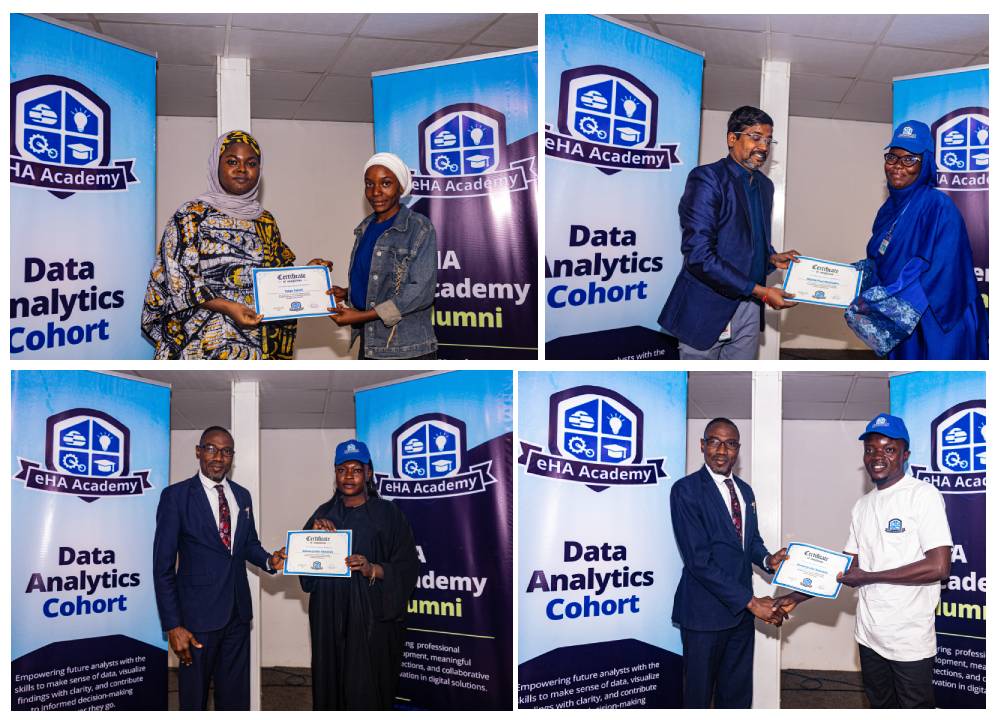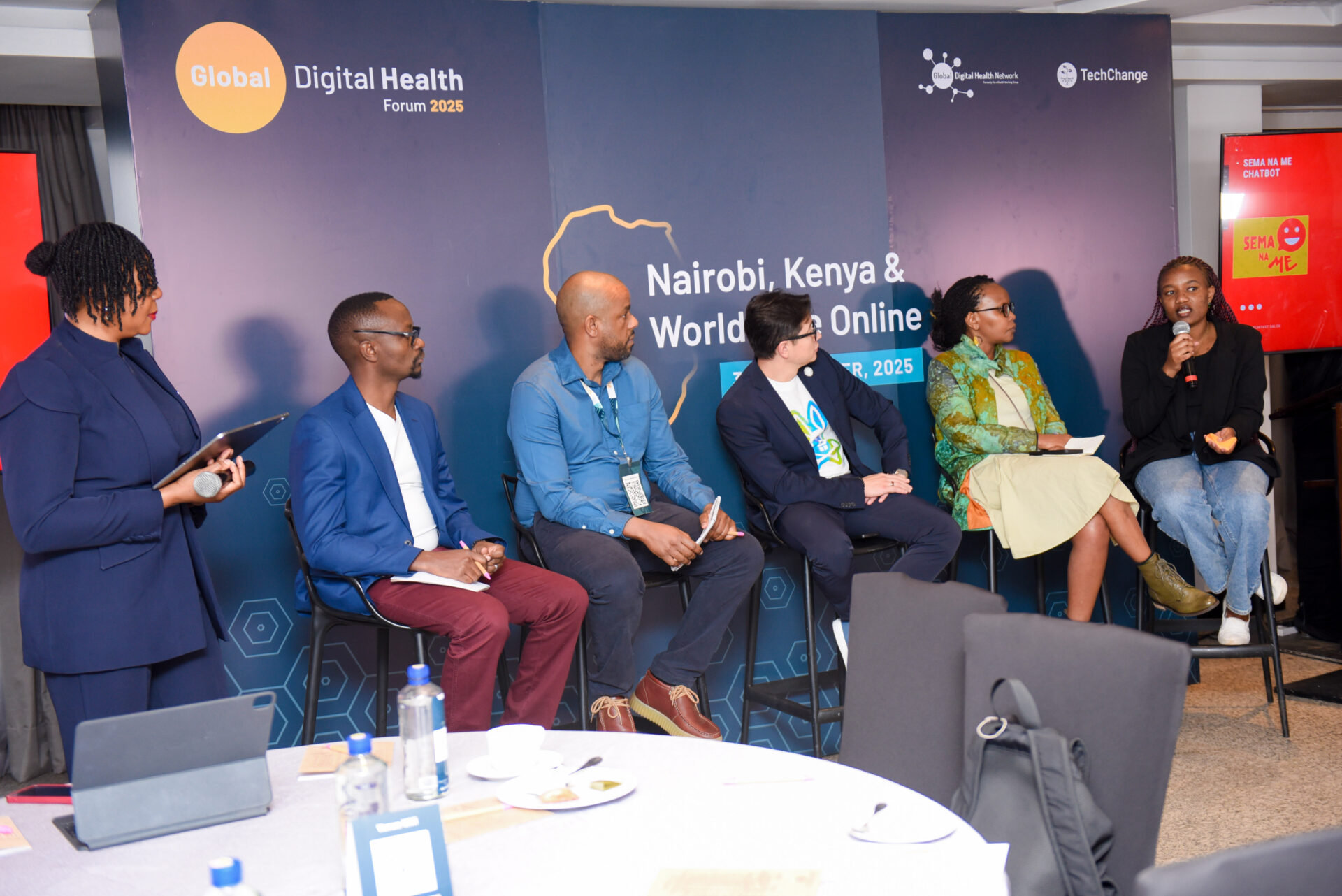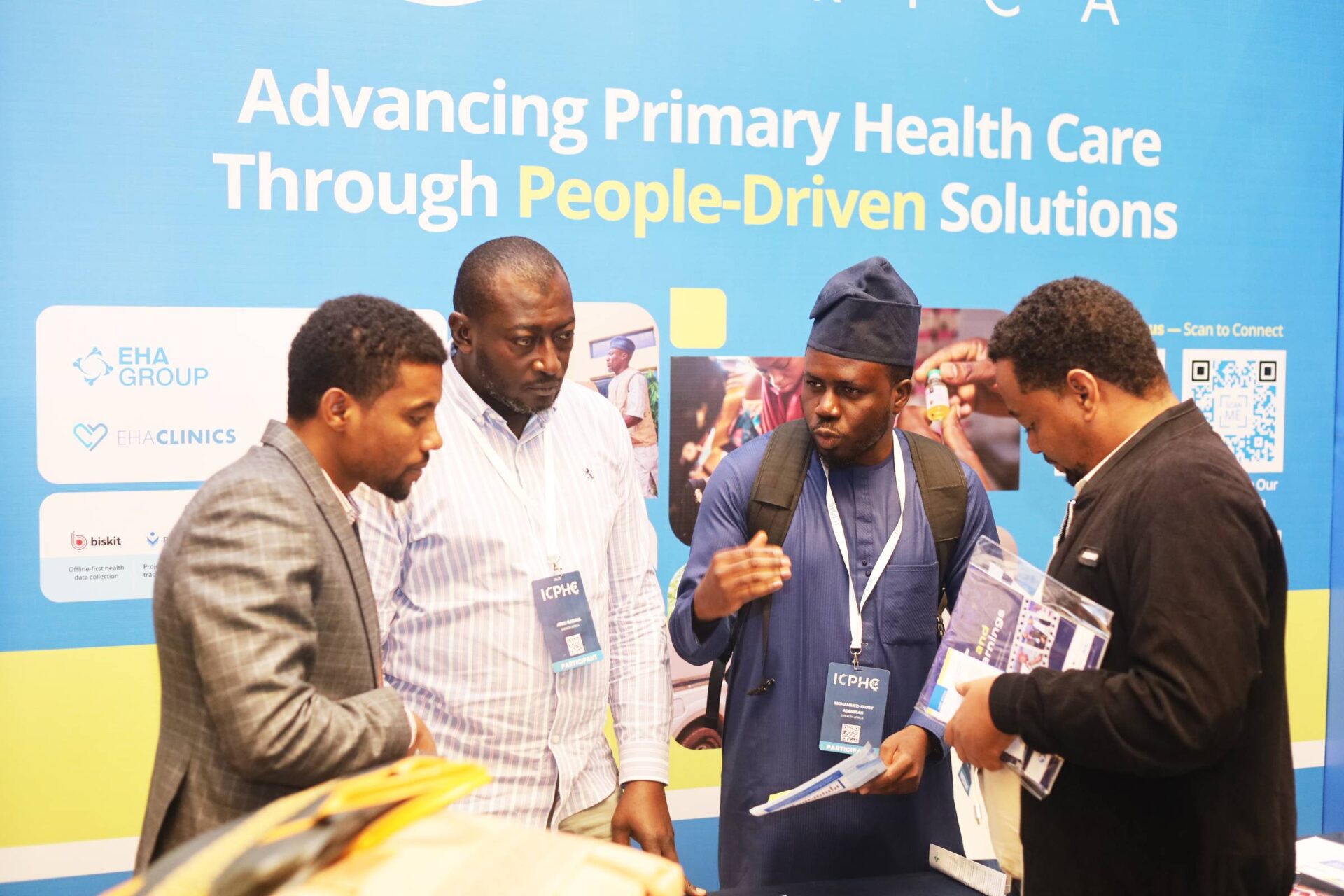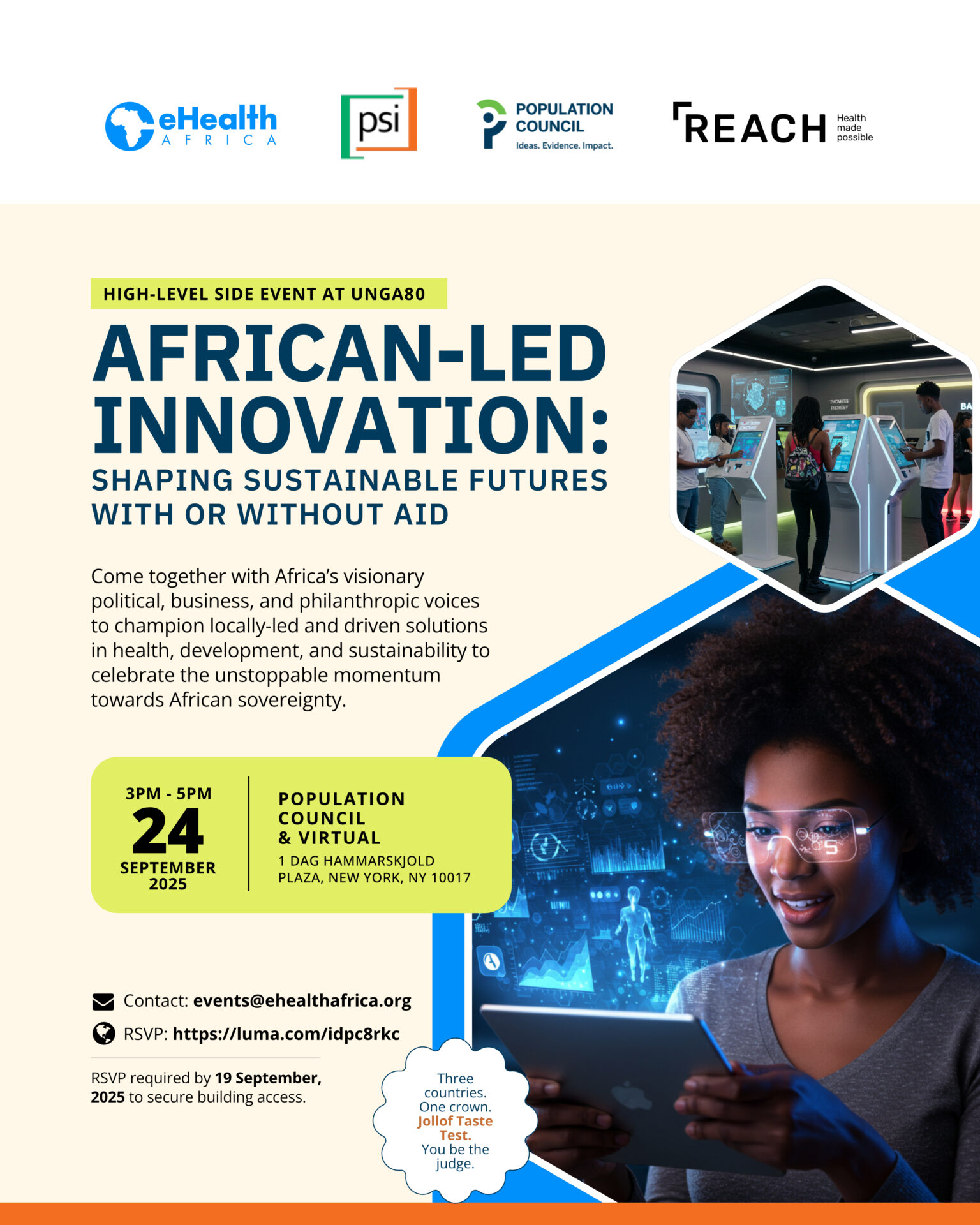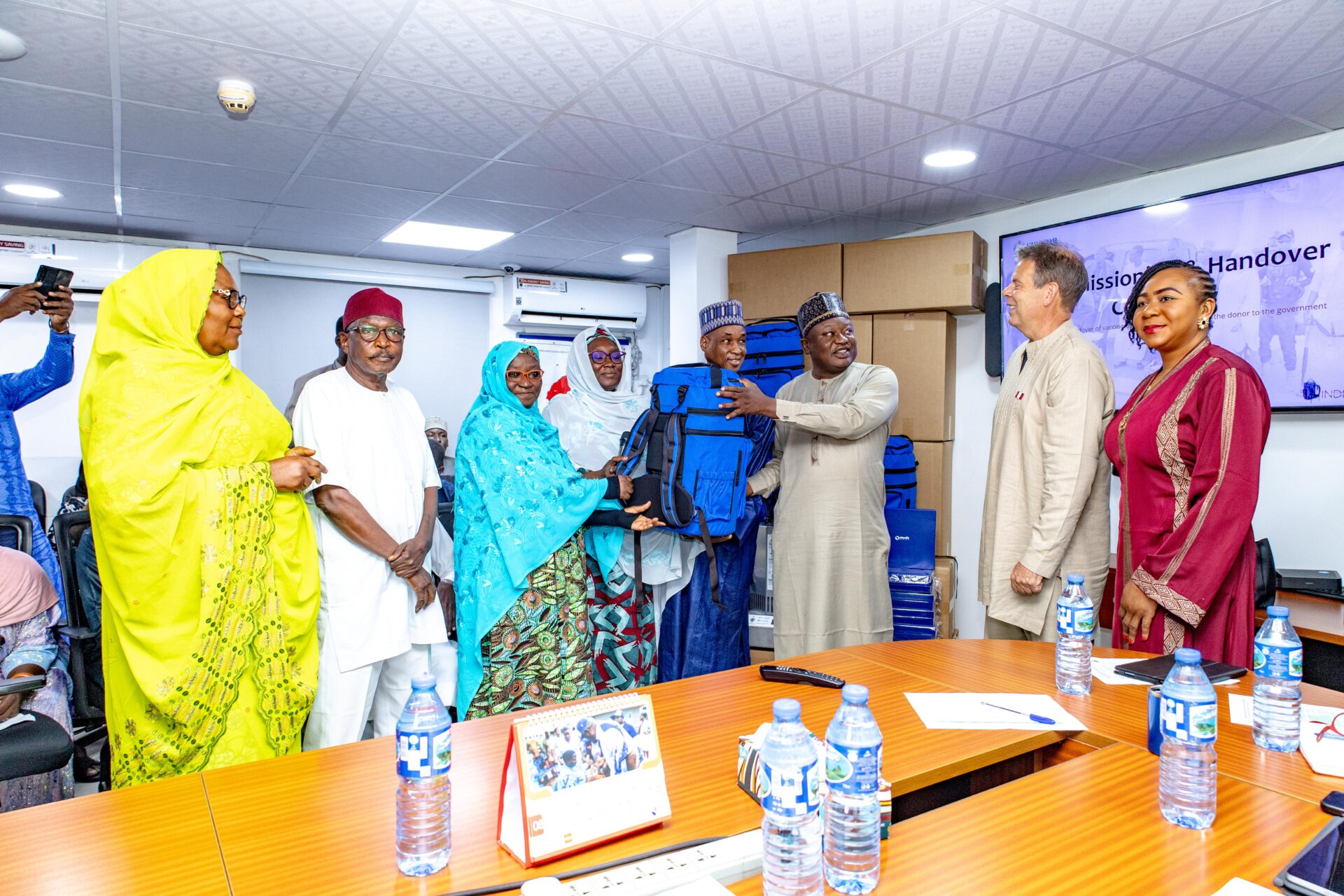Press Release
UNICEF, GAVI, eHealth Africa Deliver 28 Solar Powered Primary Healthcare Facilities to Boost Maternal and Child Care in Kano State
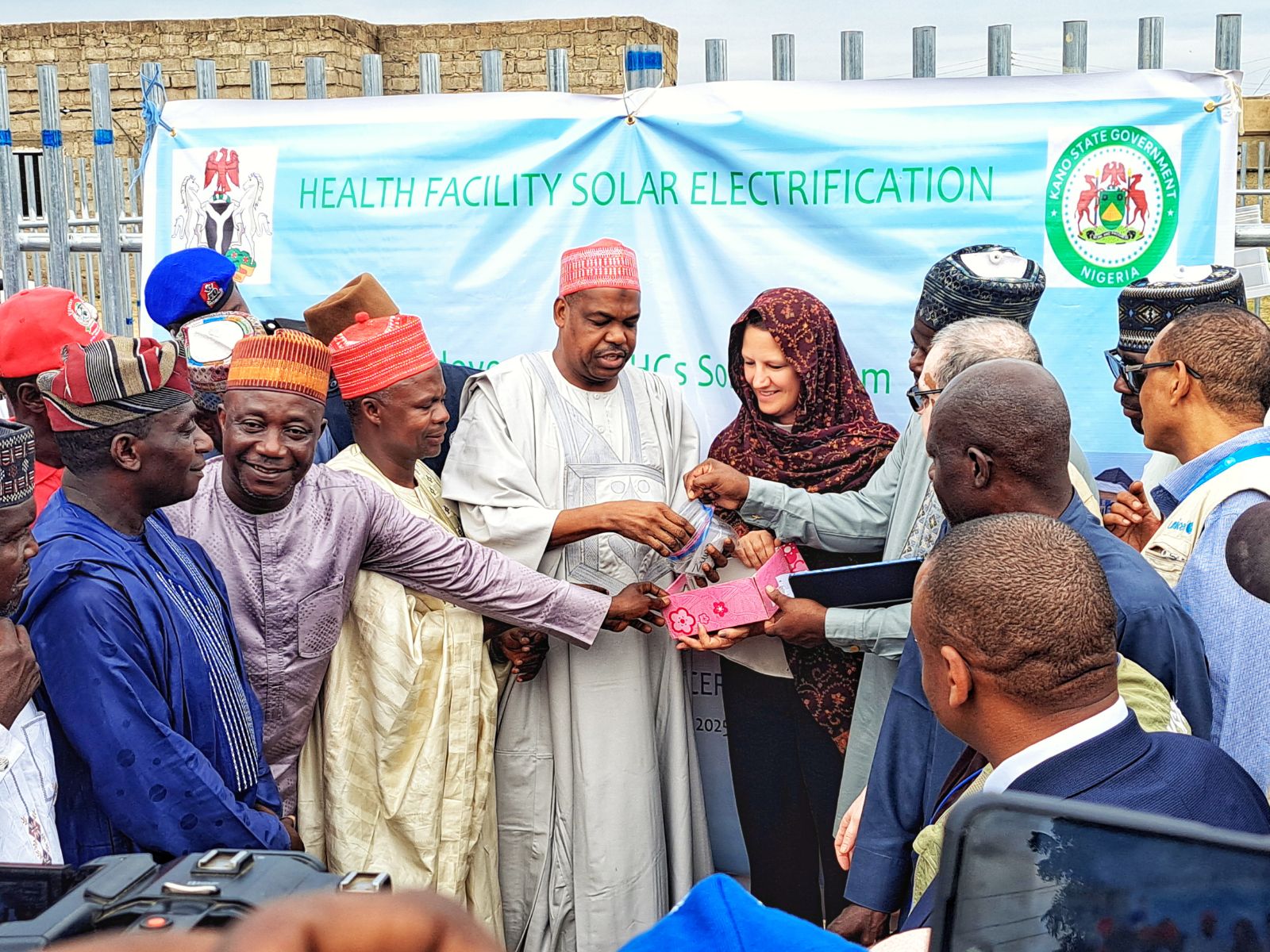
For Immediate Release
[Kano – Nigeria] August 18, 2025
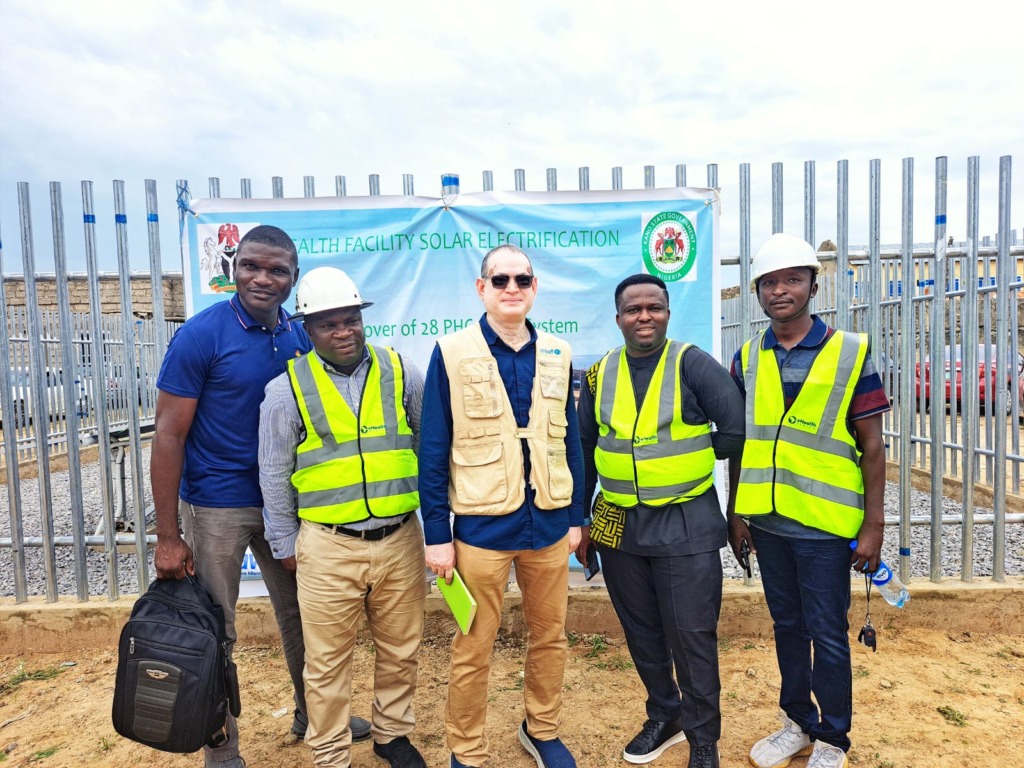
Last week, we marked a major milestone in improving maternal and child healthcare, strengthening vaccine storage, and reducing general healthcare service disruptions with the official handover of 28 fully solar-powered Primary Health Care (PHC) facilities to the Kano State Government. Implemented by eHealth Africa with funding from the United Nations Children’s Fund (UNICEF) and support by Gavi, the Vaccine Alliance, these upgrades are set to transform health service delivery across the state.
The facilities, officially handed over to the state by UNICEF on 11th August 2025, are part of an ongoing initiative to solarize 238 primary healthcare centres across 12 Nigerian states. The intervention focuses on Nigeria’s zero-dose Local Government Areas (LGAs), where many children remain unvaccinated and lack access to essential healthcare services.
This investment in sustainable power is already transforming healthcare delivery in Kano. Facilities now operate 24/7, providing round-the-clock maternal and child health services, onsite vaccine storage, and uninterrupted immunization campaigns. Reliable power means patients benefit from consistent care, health workers are equipped with essential tools, diagnostic capabilities, and life-saving interventions.
The upgrade has boosted patient attendance by over 100% across these facilities leading to increased primary healthcare delivery rates and even attracting pregnant women from neighbouring areas. For instance, at Panshekara Primary Health Care facility in Kumbotso LGA, patient attendance jumped from 1,300 to over 3,000 in the first month after the solar-powered upgrade; more than doubling access to care.
Similarly, the installation of cold-chain equipment in these facilities has eliminated costly trips to distant hospitals, ensuring vaccines are readily available on demand. Equally important, laboratory equipment now operates at full capacity, allowing patients to receive testing and diagnostics onsite without the need for referrals to neighboring facilities.
The delivery of this project underscores eHealth Africa’s proven ability to manage and deliver large-scale, multi-state interventions that transform access to quality care. According to the Executive Director of eHealth Africa, Atef Fawaz, “This project is not just about installing solar panels. It’s about giving communities the power to access essential healthcare when they need it most. Our resilience in supporting interventions like this ensures that, not just patients but also health workers in underserved communities have the resources they need to save lives”.
Atef expressed deep appreciation to the state government, key partners, and all stakeholders whose commitment and collaboration turned this vision into reality. According to Atef, “None of this would be possible without the strong partnerships we’ve built with governments, donors, and organizations committed to lasting, sustainable healthcare.”
“As we work to complete the remaining facilities across all 12 states, we look forward to deepening these collaborations to reach even more underserved communities.” he added.
Speaking at the handover, the Chief of UNICEF Field Office in Kano, Mr. Rahama Farah, represented by Officer-in-Charge Mr. Michael Banda, emphasized the critical role of reliable electricity in healthcare delivery. “Reliable power enables proper vaccine storage, 24-hour service delivery, and reduced reliance on fossil fuels,” Farah noted.
He explained that the project is based on a 2023 Primary Health Care functionality assessment, which identified 371 health centres nationwide for solarization. “These 28 facilities were selected based on their location in zero-dose LGAs, absence of overlap with other interventions, limited or unreliable electricity, and active routine immunization services. The installations, carried out in partnership with eHealth Africa, are expected to provide uninterrupted vaccine refrigeration, 24-hour healthcare services, and reduced dependence on fossil fuels”, he said.
Receiving the facilities, the Honourable Commissioner of Health, Dr. Abubakar Labaran Yusuf, commended the initiative noting its potential to address the challenge of zero-dose children and pregnant women without access to immunization and basic healthcare.
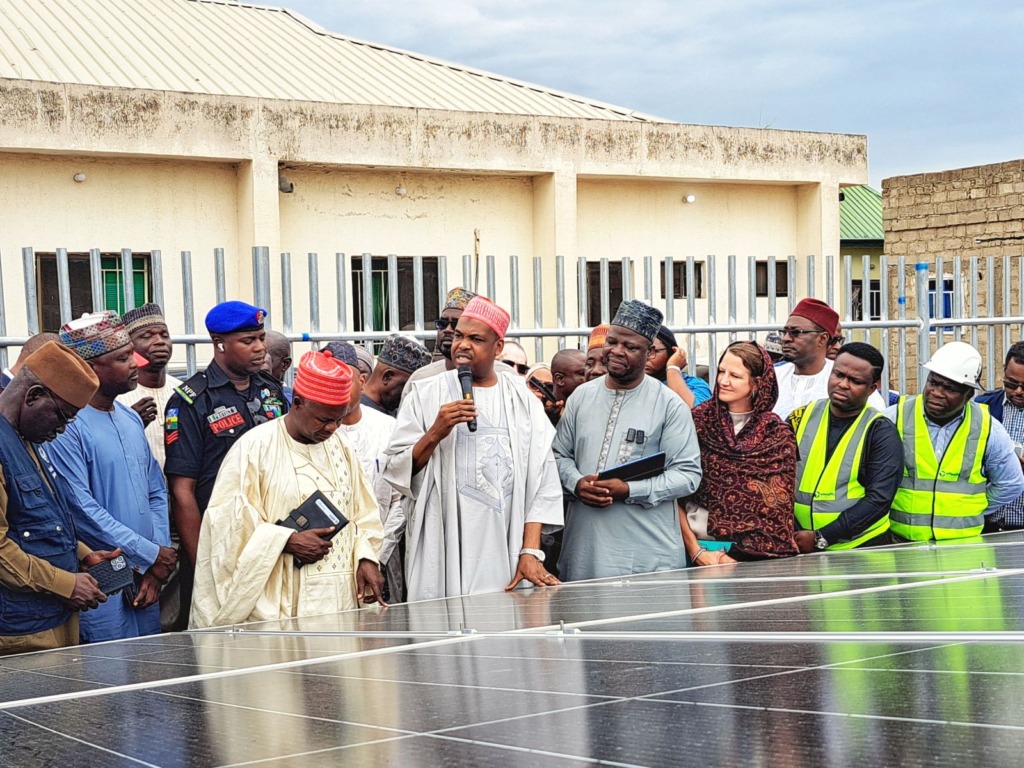
“Healthcare workers and the communities must ensure judicious use of the facilities to achieve maximum impact. The availability of constant power means healthcare can be delivered at any time even at midnight and people will no longer be hesitant to seek care,” he said.
Health workers, once constrained by frequent power outages, now operate with renewed enthusiasm and efficiency, while patients enjoy greater comfort and uninterrupted services. Essential tools such as digital weighing scales are in daily use, and diagnostic services like genotype testing now deliver same-day results. This reliable, sustainable power supply is not only improving routine immunization but also strengthening overall healthcare delivery and rebuilding community trust across the state.
About eHealth Africa
eHealth Africa (eHA) is a non-profit organisation dedicated to strengthening health systems across Africa through the design and implementation of data-driven solutions. Over the past 15 years, eHealth Africa has developed a robust tech and operational platform specifically designed to address public health challenges. By opening its platforms for collaboration, eHA accelerates innovation adoption and impact. The organization’s work spans 24 African countries, including Chad, Liberia, Cameroon, Tanzania, Madagascar, and Zimbabwe. For more information, visit www.ehealthafrica.org.
Media Contact:
Amarachi Mbagwu
Communications Manager, eHealth Africa
amarachi.mbagwu@ehealthnigeria.org
